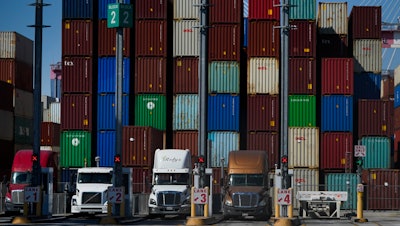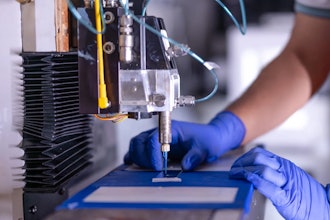
WASHINGTON (AP) — U.S. manufacturing growth slowed in October amid growing headaches from supply chain bottlenecks and labor shortages.
The Institute for Supply Management, a trade group of purchasing managers, said Monday that its index of manufacturing activity dipped slightly to a reading of 60.8% in October, 0.3 percentage-points below September's 61.1%.
Any reading above 50 indicates growth in the manufacturing sector. But the ISM report noted that manufacturers and suppliers were dealing with an unprecedented number of hurdles in their efforts to meet rising demand.
“Manufacturers continued to face unprecedented shipping bottlenecks, input shortages and difficulties filing vacant positions,” said Oren Klachkin, lead U.S. economist at Oxford Economics.
The report showed the supply chain problems showing up in various areas, including a jump of 4.5 percentage points in the prices paid index to 85.7% as manufacturers continued to face surging prices for raw materials and component parts.
All six of the biggest manufacturing industries continued to register moderate to strong growth in October with 16 industrial overall registering growth, led by apparel, leather and allied products and furniture and related products.
The two industries that showed decreases in growth were wood products and nonmetallic mineral products.
Timothy R. Fiore, head of ISM's manufacturing survey committee, said that U.S. companies had been particularly impacted by a rise in COVID cases in many countries in Southeast Asia where much of the production of semiconductors for autos and other products takes place.
“Vietnam, Malaysia and Indonesia have all been impacted by the delta variant. They have been shut down and that is why you are seeing so much struggle to obtain semiconductors," Fiore said.
He said another problem has been labor shortages with 27% of respondents noting higher attrition rates with workers quitting to go to higher-paying jobs and 5% noting sizable numbers of retirements.
“The labor shortages are definitely another headwind,” Fiore said, predicting that it will be well into next year before all the supply chain issues are resolved.






















